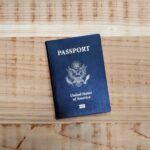Welcome to FindBiometrics’ digest of identity industry news. Here’s what you need to know about the world of digital identity and biometrics today:
NIST Unveils IoT Advisory Board
The National Institute of Standards and Technology (NIST) has established an Internet of Things Advisory Board. Situated under the umbrella of the Department of Commerce, the Advisory Board comprises sixteen individuals hailing mostly from the public sector, though it also features academics from Morgan State University, the Georgia Institute of Technology, and Harvard, as well as private sector leaders. The announcement comes as the White House prepares a cybersecurity label for IoT devices, an effort in which the administration says NIST will play a major role.
BIPA Case Disrupted by Lawyer’s Greed?
A Biometric Information Privacy Act (BIPA) lawsuit against Clearview AI has been disrupted by infighting among the the plaintiffs’ lawyers. In September, Scott Drury quit the firm representing the plaintiffs, Loevy & Loevy, and went on to start his own firm, Drury Legal. Loevy & Loevy says that Drury claimed he would take all of its Clearview plaintiffs with him, and that he organized notices of their withdrawals from the lawsuit. In response, Loevy & Loevy has now submitted a filing asking the US District Court for the Northern District of Illinois to clarify that the firm itself was appointed as class counsel, and that therefore it represents the plaintiffs now claimed by Drury. Drury Legal, meanwhile, formed part of the legal team that was recently defeated in separate BIPA lawsuits against Amazon and Microsoft.
Hong Kong Airports Deploys Curb-to-Gate Biometrics
The Hong Kong International Airport has fully implemented a curb-to-gate biometric passenger processing system. Dubbed “Flight Token”, the system allows travelers to check in, check their bags, and board their flights without needing to present documentation. Instead, identity verification is performed at each step via facial recognition, with a given passenger’s face acting as a kind of identity token.
Facial Recognition Identifies NY Subway Attacker
The NYPD has tracked down and apprehended a man who pushed another commuter onto the city’s subway tracks with the help of facial recognition technology. Lamale McRae, who has a history of violent crimes, pushed David Martin onto the tracks in an unprovoked attack, and was caught on surveillance video fleeing the scene. That gave police an opening to use biometric technology to identify the culprit. Martin survived the attack with a broken collarbone.
Hinge to Implement Selfie Authentication
Hinge has become the latest dating app to embrace face-based identity verification in an effort to crack down on catfishing and fraud. The platform will introduce a video selfie feature next month, allowing users to get a “Verified” badge on their profiles.
Live From Money20/20
The Money20/20 fintech trade show always delivers opportunities to connect with major players in the biometrics industry. At this week’s event, FindBiometrics’ Doug OGorden spoke with AuthID.ai CEO Tom Thimot on the show floor for the ID Talk podcast.
Product Launches, Deployments, and Partnerships
IDScan.net has launched a vending machine for age-restricted goods that uses facial recognition technology to match customers to their photo ID, thereby verifying that they are of age to make purchases. The machine features a 43″ touchscreen and enough room for 450 individually wrapped cannabis products, the company says.
AuthenticID, an identity verification specialist founded in 2001, has launched a new digital wallet solution, called “Identity Pass”. The mobile app is designed to store virtual versions of IDs such as drivers licenses and passports. Featuring a biometric authentication system, the app can also be used for passwordless and multi-factor login.
Oosto has launched an upgraded version of its Vision AI facial recognition platform alongside a touchless tablet dubbed “OnPoint”. The latter is aimed primarily at enterprise access control applications, with a capability of recognizing personnel and support for 3D liveness detection. It benefits from the upgraded Vision AI software, which has been refined to bring more efficient computing from servers to edge devices while maintaining accuracy. Read our full story.
Socure is expanding its business operations into Canada, the UK, and Europe, where it will offer various solutions including its Predictive DocV, Global Watchlist, and behavioral biometrics offerings. “Our expansion internationally marks a milestone moment in the maturation of Socure as we introduce our industry leading identity verification and fraud prevention solutions to global customers tackling multi-country identity and fraud threats,” said Socure CEO and founder Johnny Ayers.
Singapore-based Advanced.AI has provided a selfie-based onboarding system for Finnix, a fintech app. Finnix was developed by the Thailand-based lender Monix, and offers access to micro-finance loans. Users can verify their identities by uploading photos of their Thai national ID cards and their faces.
Telos has been selected by the Maryland Aviation Administration to provide background check services through the TSA-approved Designated Aviation Channeling service for the Baltimore/Washington International Thurgood Marshall Airport (BWI). The DAC service entails the collection of workers’ biographic and biometric data.
Fool Me Once…
Researchers at Singapore’s Home Team Science and Technology Agency (HTX) are working on a biometric lie detector system. They say that they have identified multiple metrics that can be used to detect dishonesty, including eye blinking or fixation, respiratory rate, and heart rate, and have been using specialized sensors to test the system on volunteers. But accuracy remains an issue; the researchers have not disclosed their success rate in testing, but told The Straits Times that they are hoping to reach an accuracy rate of 70 percent in the future.
–
October 25, 2022 – by Alex Perala









Follow Us